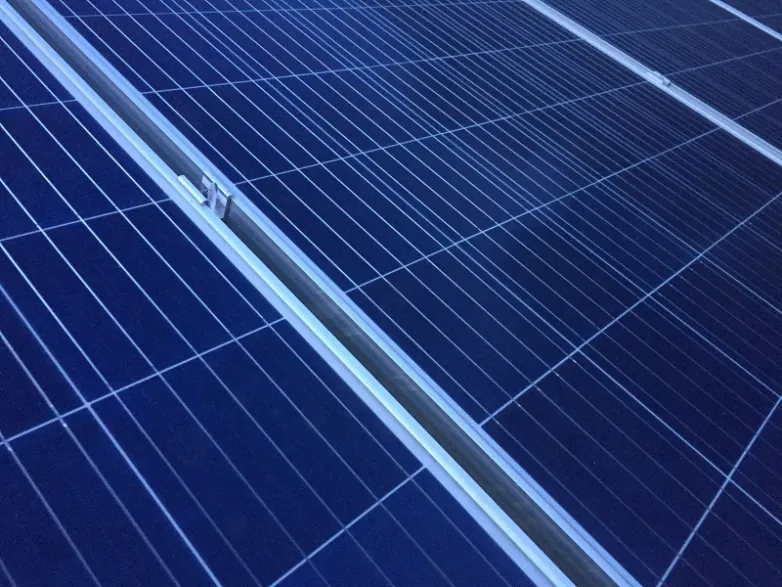Total and Marubeni to Build 800MW Solar Plant in Qatar Ahead of World Cup
- Gas exporting powerhouse Qatar’s first utility-scale PV project will be built for what is said to be the lowest-ever price for a solar PPA.

French oil major Total and Japanese conglomerate Marubeni have won the rights to build Qatar’s first utility-scale solar PV project, due online in time for the 2022 World Cup.
The 800-megawatt Al Kharsaah development will use more than 2 million bifacial solar modules, making it one of the largest bifacial projects anywhere in the world.
Total and Marubeni will own a 40 percent stake in the project with Siraj Energy, a joint venture between Qatar Petroleum and Qatar Electricity & Water Company, owning the remainder. The full investment for the project is estimated to be 1.7 billion Qatari riyals ($467 million).
Qatari national power firm Kahramaa has signed a 25-year power-purchase agreement for the output of the project. The first 350 megawatts will be operational next year with the full project scheduled for completion in 2022.
Qatar, whose natural-gas exports trail only those of Russia, will host the FIFA World Cup in 2022 and has pledged to make the event carbon-neutral.
Lowest-ever solar PPA price
Kahramaa President H.E. Eng. Essa bin Hilal Al-Kuwari claimed the PPA price was the lowest ever for a solar power project but did not state the value of the winning bid.
In November, Dubai claimed to have taken the record with a bid of 1.7 U.S. cents per kilowatt-hour for the next 900-megawatt phase of the Mohammed bin Rashid Al Maktoum Solar Park. ACWA Power, the winner of that tender, is already using bifacial modules in a previously completed phase of the same solar park.
“Monitoring the recent developments in solar panel manufacturing, including...improving efficiency and decreasing costs, and considering the natural-gas quantities that can potentially be saved and the associated emissions reductions, Kahramaa has decided to go forward with a utility-scale solar power plant,” explained Al-Kuwari.
Although one of the world's largest oil and gas companies, Total has long been active in renewables, especially solar power. It bought a 60 percent stake in SunPower in 2011 and plans to retain a share of the manufacturing spinoff company Maxeon. Total acquired energy storage manufacturer Saft in 2016.
“Al Kharsaah, Total’s largest solar project to date, will contribute to our ambition to deploy 25 gigawatts of renewables by 2025,” Total CEO Patrick Pouyanné said in a statement. “This project further strengthens our long-term partnership with Qatar in oil, natural gas, refining and petrochemicals and expands it to include renewable energy. It is a very clear symbol of the strategy of Total to become a global energy company.”
Total has 3 gigawatts of renewables in operation so far, with solar projects spread around the globe including in Chile, South Africa and Japan.
Blossoming market for bifacial solar panels
The Middle East is developing a considerable pipeline of bifacial solar and will rival North America on growth in this particular solar segment. According to a research note by Wood Mackenzie analyst Xiaojing Sun, a 600-megawatt bifacial project in Oman is in the works, as well as 320 megawatts in the UAE, with more expected in Saudi Arabia too.
Sun puts U.S. bifacial deployment at 2 gigawatts by the end of this year and 7 gigawatts by the end of 2024.
China took an early lead in bifacial solar deployment via its Top Runner program. It offered additional subsidies to projects using high-specification components.
The Qatari tender was originally listed as 500 megawatts to be built on 10 square kilometers of land, before being increased to 700 and then 800 megawatts. Individual module power has increased rapidly since the Qatari was first conceived, with Jinko and Longi both now offering bifacial panels in excess of 440 watts each.
Tenders in Dubai and Abu Dhabi have both grown prodigiously during the procurement process as technical advances and falling levelized costs of electricity persuaded developers and offtakers to double down.
A total of 16 bidders including European power companies Enel, Engie and Innogy along with Chinese solar giants Jinko and GCL New Energy were preapproved. In the end, just five bids were received from Mitsubishi, the Power Construction Corporate of China and two joint ventures, Engie/GS Engineering and Jinko/Korea Electric Power Corporation.
Also read

